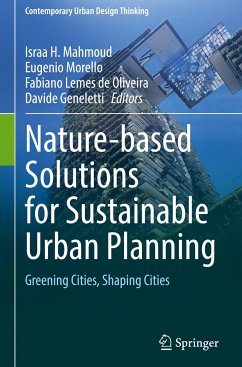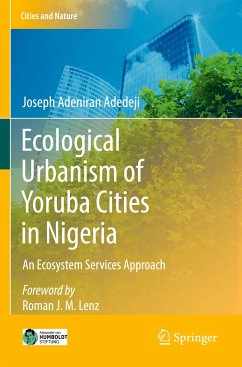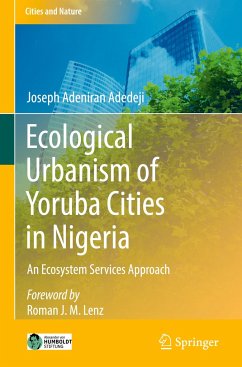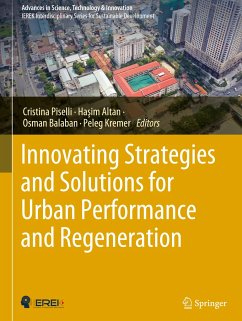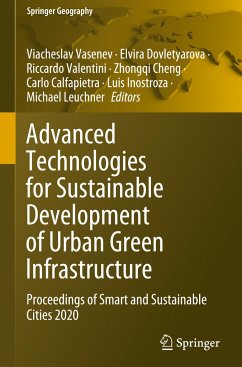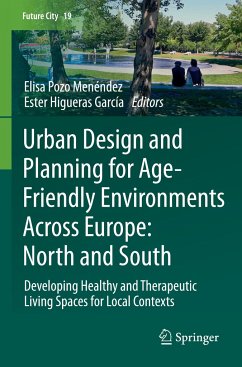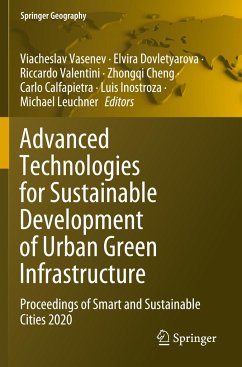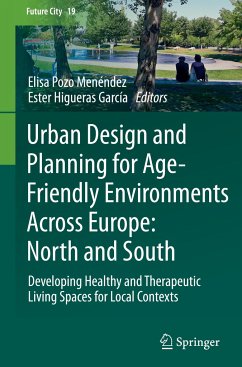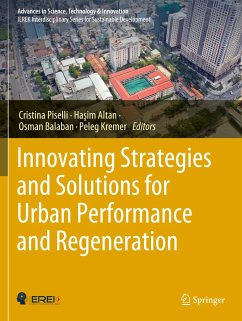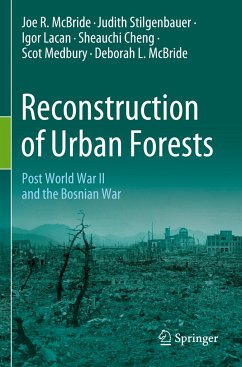Dr. Israa H. Mahmoud Israa is a Quadri-lingual urban planner and architect by education. Since 2018, she is a post-Doc research fellow at the Urban Simulation Lab Fausto Curti, Department of Architecture and Urban Studies (DAStU), at Politecnico di Milano. Now she is the research team leader together with Prof. Eugenio Morello on CLEVER Cities Project - Funded by the European Commission - Horizon 2020 as an expert of Co-creation guidance for cities to implement Nature-based solutions in socially inclusive urban regeneration processes. She holds a Ph.D. in "Sociability of Public spaces and Placemaking approach as key drivers for Cultural-Based Urban Regeneration processes." Learning case study: Northend Park, Rose Kennedy Green Way, Boston Massachusetts, USA. In 2015, she started her PhD in Urban Regeneration and Economic Development in Mediterranean University of Reggio Calabria, Italy. Later, in 2016 she pursued her PhDdegree in Northeastern University of Boston MA. Starting 2017, she took part to a European Commission - MARIE-CURIE Action funded Horizon 2020 Project - GA # 645651 - MAPS-LED Project as an (ESR) early stage researcher, then as an Experienced Researcher (ER) in San Diego state University, CA, USA. Back in 2010, She earned her bachelor's degree from Architectural Engineering Dept. Alexandria University of Egypt with a major on Urban Design section about psychological and environmental urban design, in a collaboration program with Michigan state University and Bauhaus-Universität Weimar, Germany. In Politecnico di Milano, she also lectures about Nature-based solutions in the Master of Science in Urban Planning and Policy Design, Leonardo campus; as well as Master of Sustainable Architecture and Landscape design, Piacenza campus. Lately, she co-leaded the Greening Cities, Shaping Cities international symposium at Politecnico di Milano, October 2020. Prof. Eugenio Morello An architect by education, Eugenio Morello isAssociate Professor in Urban Design at Polimi, Department of Architecture and Urban Studies (Dastu). He is coordinator and research scientist at the Laboratorio di Simulazione Urbana Fausto Curti (since 2010), and the Climate Change Risk and Resilience Lab (since 2020). Since 2017 he is the Rector's Delegate for environmental sustainability. He is the department principal investigator of the European H2020 projects 'Clever Cities' and 'Sharing Cities'. His research interest is situated in the interplay between urban design and environmental quality, climate design, resilience and adaptation to climate change. He investigates the integration of environmental aspects and energy transition solutions for the design of sustainable neighbourhoods towards the closing of energy and environmental cycles. More recently, his research work has opened new insights on the topic of collaborative consumption and sharing society and how these new paradigms can inform urban planning, urban design and co-creation approaches. Prof. Davide Geneletti Associate Professor of Spatial Planning at the University of Trento. Specialised in impact assessment of projects, plans and policies; spatial and urban planning; ecosystem services; multicriteria analysis. Formerly Research Fellow at Harvard University's Sustainability Science Program (2010-11), and Visiting Scholar at Stanford University's Woods Institute for the Environment (2014). He has consulted for private and public bodies internationally, including the United Nations Environment Programme (UNEP), UN-HABITAT, and the European Commission. Editor-in-Chief of the Journal of Environmental Assessment Policy and Management and deputy Editor of the open access journal One Ecosystem. He has been Principal Investigator/Work Package leader in over 10 international research projects. PhD from Free University Amsterdam. Prof. Fabiano Lemes de Oliveira Associate Professor in Urbanism at the Department of Architecture and Urban Studies at Politecnico di Milano. Prof. Lemes joined Politecnico di Milano in 2019 after over 10 years working at the University of Portsmouth in the United Kingdom. His research lies at the intersection of urban and environmental planning, with a focus on the relationships between city and nature, and the roles of green space systems and planning models in city and regional planning. Recent research areas include green urbanism, planning history, nature-based solutions, urban design theory and practice, urban sustainability, planning models aimed at balancing urbanisation with nature - in particular related to the green wedge idea and green infrastructure. He is the author of the book Green Wedge Urbanism: History, Theory and Contemporary Practice, published by Bloomsbury (London/ New York) and co-edited the book Planning Cities with Nature: Theories, Strategies and Methods, published by Springer (Amsterdam).







